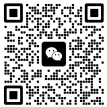本文探讨了近20年来处理思维的改革与发展。古典理论家们说过才智影响了第二十世纪的处理者的任务吗?
科学处理理论(泰勒)是在19世纪80年代期间,由弗雷德里克·温斯洛·泰勒介绍。泰勒理论解说了重新规划工作流程以前进功率为意图的人和任务之间关系的系统研究。他认为,如果每一个工人花费的时间和精力,以发生一个输出单位,可以削减经过添加专业化和分工,它会使生产过程变得更有功率。
1. Introduction 简介
This study discusses the reform and development of management thinking during the last 20 years. Do the classical theorists have says of wisdom impacting the managers task of the 20th century?
2. Literature Review of The Management Thoughts 处理思维文献总述
2.1. The Early Management Theorist
2.1.1. Scientific Management Theory by Frederick Winslow Taylor
Scientific management theory (Taylorism) is introduced by Frederick Winslow Taylor during the 1880s. Taylorism theory explains the systematic study of relationships between people and tasks for the purpose of redesigning the work process in order to increase efficiency. He believed that if the amount of time and effort that each worker spent to produce a unit of output could be reduced by increasing specialization and the division of labor, it would then make the production process become more efficient.
Based on his own experiments and observations as a manufacturing manager, he managed to develop four principles to increase efficiency in the workplace (Jones & George, 2008). First, study the way workers perform their tasks, gather all the informal job knowledge that worker possess, and experiment with ways of improving the way tasks are performed. Usually this meant simplifying jobs and having each worker perform fewer, more routine. Second, codify the new methods of performing tasks into written rules and standard operating procedures. Third, carefully select workers so that they possess skills and abilities that match the needs of the task, and train them to perform the task according to the established rules and procedures. Forth, establishes a fair or acceptable level of performance for a task, and then develops a pay system that provides a reward for performance above the acceptable level.
2.2. The Recent Management Theorist
2.2.1. Systems Theory
System theory is an extension of the humanistic perspective that describes organizations as open systems that are characterized by entropy, synergy and subsystem interdependence. There are five components of system theory including inputs, transformation process, outputs, feedback, and the environment.
Open system A system that takes in resources from its external environment and converts them into goods and services that are then sent back to that environment for purchase by customers. These theorists viewed the organization as an open system—a system that takes in resources from its external environment and converts or transforms them into goods and services that are then sent back to that environment, where they are bought by customers. The system just described is said to be “open” because the organization draws from and interacts with the external environment in order to survive; in other words, the organization is open to its environment.
A closed system, in contrast,is a self-contained system that is not affected by changes that occur in its external environment. Organizations that operate as closed systems, that ignore the external environment and that fail to acquire inputs, are likely to experience entropy, the tendency of a system to lose its ability to control itself and thus to dissolve and disintegrate
2.2.2. Contingency Theory
Contingency theory-The idea that managers' choice of organizational structures and control systems depends on—is contingent on—characteristics of the external environment in which the organization operates.
The crucial message of contingency theory is that there is no one best way to organize: The organizational structures and the control systems that managers choose depend on—are contingent on—characteristics of the external environment in which the organization operates. According to contingency theory, the characteristics of the environment affect an organization's ability to obtain resources. To maximize the likelihood of gaining access to resources, managers must allow an organization's departments to organize and control their activities in ways most likely to allow them to obtain resources, given the constraints of the particular environment they face. In other words, how managers design the organizational hierarchy, choose a control system, and lead and motivate their employees is contingent on the characteristics of the organizational environment. The basic idea behind contingency theory—that there is no one best way to design or lead an organization—has been incorporated into other areas of management theory, including leadership theories.
2.2.3. Total Quality Management
TQM, a concept that focuses on managing the total organization to deliver quality to customers. Four significant elements of TQM are; employee involvement, focus on the customer, benchmarking, and continuous improvement.
3. Discussion 评论
3.1. The Driving Forces behind the Evolution of Management Theory
The driving force behind the evolution of management theory is the search for better ways to utilize organizational resources. Advances in management theory typically occur as managers and researchers find better ways to perform the principal management tasks: planning, organizing, leading, and controlling human and other organizational resources.
The rapid development of information science and technology has accelerated the globalization of enterprise organization, because as more individuals and enterprises communicate with each other over the internet, not only are human economic activities transformed, but also the internal structures of organizations and competition among rivals are changed simultaneously. Hence, the traditional management mode has been greatly challenged, so this study will discuss the transformation of management thinking in the following aspects.
3.2. Application of Taylorism Theory for Today's Managers
3.3. Criticisms of Taylorism Theory
Technically Scientific Management is the “management thought concerned primarily with the physical efficiency of an individual worker”.
Scientific management brought many workers more hardship than gain, and left them with a distrust of managers who did not seem to care about their wellbeing. These dissatisfied workers resisted attempts to use the new scientific management techniques and at times even withheld their job knowledge from managers to protect their jobs and pay.
Unable to inspire workers to accept the new scientific management techniques for performing tasks, some organizations increased the mechanization of the work process. From other perspectives, though, scientific management practices raise many concerns. The definition of the workers' rights not by the workers themselves but by the owners or managers as a result of the introduction of the new management practices raises an ethical issue, which we examine in this “Ethics in Action.”
3.4. Mina
4. Conclusion
5. References





